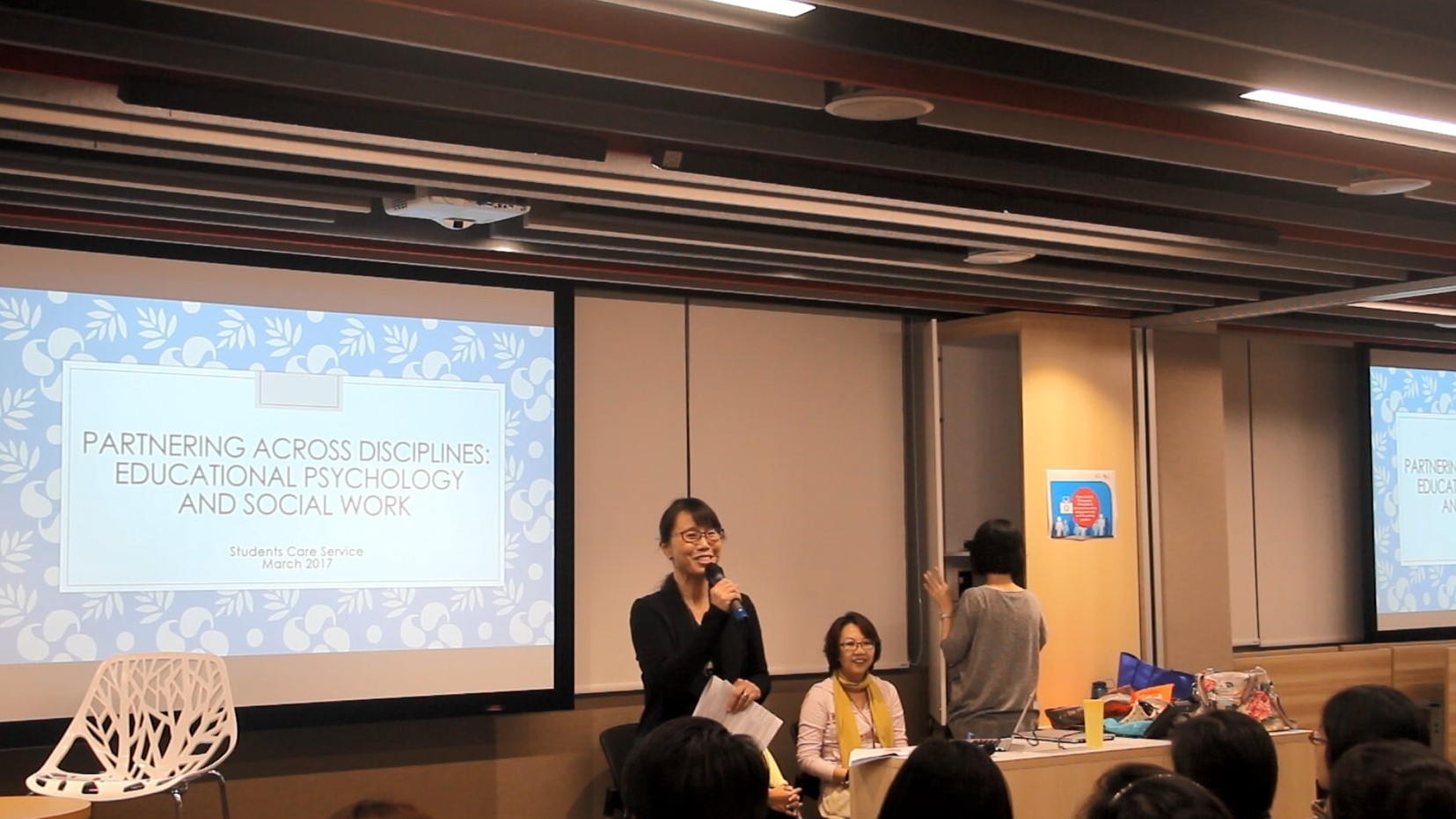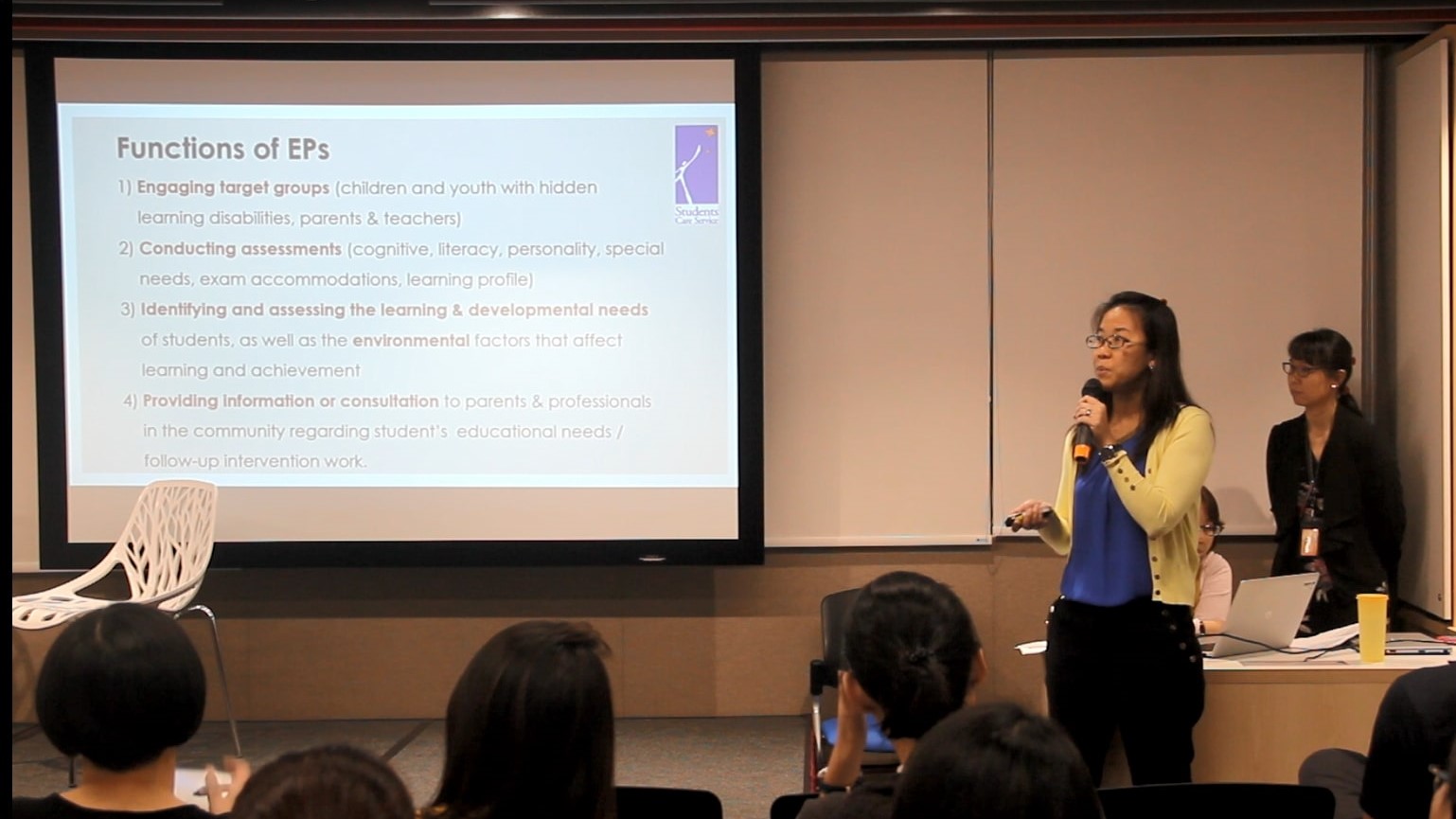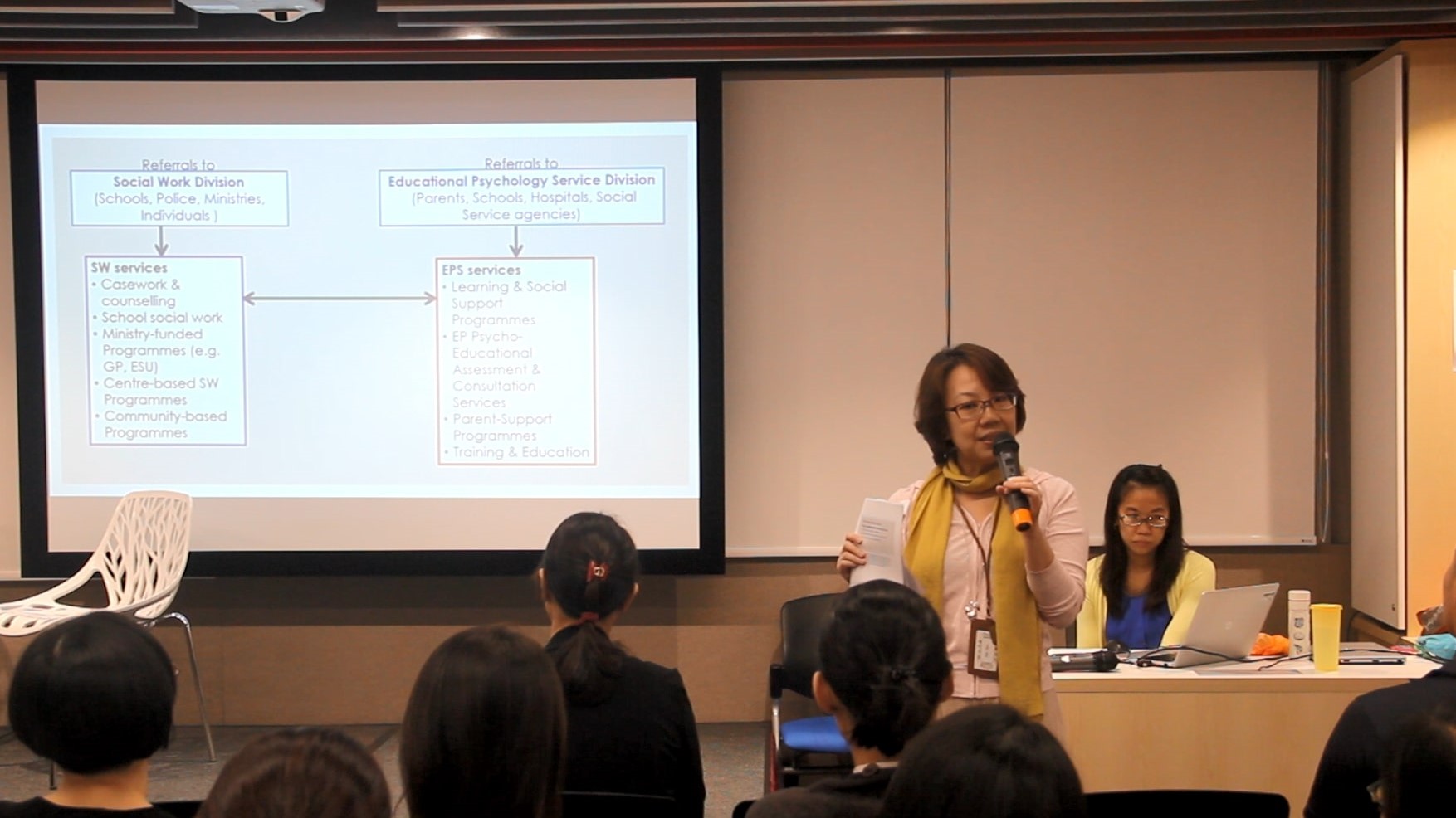Mining Deep, Scaling Heights, Session: Partnering Across Disciplines: Educational Psychology and Social Work
On 30 March 2017, social service practitioners from SHINE Children & Youth Services, were invited to speak on the topic “Partnering Across Disciplines: Educational Psychology and Social Work”. They shared about how a close partnership between educational psychology and social work helps both specialisations achieve more than what each party can accomplish on their own, for the interests of children and youth.
Speakers from SHINE Children & Youth Services:
1. Ms Melissa Lim – Social Work Clinical Director/ Principal Social Worker
2. Ms Esther Teo – Senior Educational Psychologist, Educational Psychological Service
3. Ms Geraldine Low – Director, Educational Psychological Service
Designations as of 30 March 2017.



Partnering Framework:
1) Define the Need for Partnering
- Is there a clear need for partnering?
- Is someone doing something similar?
- Is there commitment and appropriate support from relevant parties?
2) Begin the Partnering Process
- Who are our potential members?
- What will be the responsibilities, plans and priorities?
- What is the nature of this partnership?
3) Follow Through in Partnering
- Do we have the structure (e.g. an effective communication structure), processes, and support mechanisms?
- Is there documentation in place?
- Is there a review on the partnering work?
Evaluating the Challenges and Risks of Partnering – it is important to:
- Manage differing opinions and assessments on the same case
- Balance competing work demands
- Decide when to adopt a formal or informal structure in the partnership
- Decide who does what, how much, as well as the time of review – to minimise stakeholder confusion
Benefits of Partnership
- Increases our awareness and understanding of the factors impacting the learning and social development of the child
- Creates room for consistent dialogue between the clients’ contact points
- Provides a holistic, coordinated support for the client
- Harnesses and maximises available resources
WHAT TO READ NEXT
- MDSH Session: Reflexive Collaboration Across Disciplines
- MDSH Session: KIDS 0-3: Collaborative Practice in a Trans-Disciplinary Home Visitation Programme
- MDSH Session: Approaches, Principles and Practice in Working With Persons With Disabilities
- MDSH Session: More Than Just a House: Perspectives of Journeying With Families With Housing Issues
- MDSH Session: Working With Vulnerable Families and Systems: Insights From the Strengthening Families Together Pilot